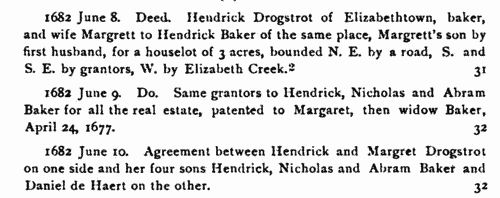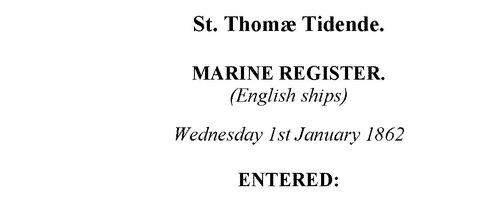Murdo Surname Ancestry ResultsOur indexes 1000-1999 include entries for the spelling 'murdo'. In the period you have requested, we have the following 7 records (displaying 1 to 7): Buy all | | | Get all 7 records to view, to save and print for £32.00 |
These sample scans are from the original record. You will get scans of the full pages or articles where the surname you searched for has been found. Your web browser may prevent the sample windows from opening; in this case please change your browser settings to allow pop-up windows from this site. Scottish litigants, rebels and cautioners
(1569-1578)
The Privy Council of Scotland exercised a superior judicial authority in the kingdom, and consequently received and dealt with a constant stream of petitions, as well as dealing with the internal security of the state. This register of the council from July 1569 to June 1578, in the reign of king James VI, was edited by John Hill Burton, Historiographer Royal for Scotland, and published under the direction of the Lord Clerk Register of Scotland in 1878. Some of the individuals mentioned are the complainants, those of whom they complained, and the sureties on both sides: at this period, some of the complainants are alleging serious attacks, often of a feuding nature. Many of the bonds entered into by the cautioners are promises to keep the peace towards such enemies. Failure to answer to the council when summoned was a serious contempt, leading to being denounced a rebel, with serious consequences. But 'horning' was also used in the pursuit of debts: there was no imprisonment for debt in Scotland, but a creditor could have an obstinate debtor ordered, in the sovereign's name, to pay what was due, failing which, the debtor could be put to the horn, denounced as a rebel, and imprisoned as a rebel.
MURDO. Cost: £4.00.  | Sample scan, click to enlarge

| Scottish litigants, rebels and cautioners
(1610-1613)
The Privy Council of Scotland exercised a superior judicial authority in the kingdom, and consequently received and dealt with a constant stream of petitions, as well as dealing with the internal security of the state. This register of the council from July 1610 to February 1613, in the reign of king James VI, was edited by David Masson and published under the direction of the Deputy Clerk Register of Scotland in 1889. The publication starts with the Acta and Decreta, a chronological consolidation of material from Acta Secreti Concilii proper, the Decreta, the Book of Commissions, the Book of Sederunts, the Minute Book of Processes, and The Book of the Isles. There is then a section of Royal and Other Letters (pp. 565-644); then acts and bands (bonds) of caution (surety) from the registers called Acta Cautionis (pp. 647-690); and Miscellaneous Privy Council Papers (693-746). Many of the individuals mentioned are the complainants, those of whom they complained, and the sureties on both sides: at this period, many of the complainants are alleging serious attacks, often of a feuding nature. Many of the bonds entered into by the cautioners are promises to keep the peace towards such enemies. Failure to answer to the council when summoned was a serious contempt, leading to being denounced a rebel, with serious consequences.
MURDO. Cost: £4.00.  | Sample scan, click to enlarge

| Merchants and traders in Aberdeen
(1399-1631)
A. M. Munro searched the council registers of the royal burgh of Aberdeen, and compiled this list of burgesses admited to the borough. The entries prior to 1591 were contained in lists engrossed in the council registers at the close of the minutes for the year ending at Michaelmas, but after that date in addition to the annual lists, which are continued, there is almost always a separate minute of admission under the respective dates. The records before 1591 are not only sparser, often with no more than a name, but are also lacking for 1401-1405, 1413-1432, 1434-1435, 1518-1519, 1557 and 1562-1564 - other blanks were filled in from the guildry accounts where such existed. Guild burgesses were allowed unfettered trading rights in Aberdeen; simple burgesses could only deal in Scottish wares (so being barred from the lucrative English and Flemish imports and exports); trade burgesses were limited to their own particular trades; and the council was able ex gratia to create honourary burgesses, who were accorded the full privileges of burgesses of guild and trade, and among whom numbered members of almost every family of note in Aberdeenshire. Burgesses could thus be created by descent, by apprenticeship into a trade, or ex gratia, and in the later portions of this roll the precise circumstances are usually given, sometimes also with the name of a cautioner or surety. Burgesses, masters and cautioners are all indexed here.MURDO. Cost: £4.00.  | Sample scan, click to enlarge

| Inhabitants of New Jersey
(1664-1703)
The proprietary government of New Jersey was surrendered to the Crown in 1703. The substantial early records of the colony from 1664 to 1703 were calendared by William Nelson and published by the New Jersey Historical Society in 1899 - East Jersey Libri 1, 3, 4, A, B, C, D, E, F and G; and from West Jersey the registers of New Salem Town Grants, Revel's Book of Survey, Fenwick's Surveys, Salem Surveys, Salem Deeds, Greenwich Town Lote and Gloucester Deeds. The material surveyed includes Indian deeds, patents and other conveyances, confirmatory patents, licences for purchase of lands from the Indians, town charters, court proceedings, military and civil commissions, and allowances of land for immigrant servants; but marriage certificates were omitted from this calendar, being reserved for a separate publication. MURDO. Cost: £4.00.  | Sample scan, click to enlarge

| Masters of English Merchantmen at St Thomas (1862)
The custom house at St Thomas, a Danish colony in the West Indies, issued daily lists of ships entered and cleared, which were published as the Marine Register in the twice weekly polyglot newspaper St Thomae Tidende. The reports of entries give precise date of arrival, nationality, type and name of the vessel (sailing ships in italics, steamships in capitals), the captain's surname (in bold), and whence the ship had come, sometimes adding a brief note about the cargo. The lists of ships cleared for departure have similar details, but with the ship's proposed destination. St Thomas was an important harbour not only serving inter-island Caribbean trade, and trading with England and the north and south American colonies, but also as an entrepot or intermediate destination, ships leaving with goods imported from elsewhere. A large proportion of the shipping was English, virtually all the steamers flying the Red Ensign.
MURDO. Cost: £8.00.  | Sample scan, click to enlarge

| Scientific Poultry Breeders
(1932)
The Scientific Poultry Breeders Association was by far the largest poultry society in Great Britain, with 16,109 members for the year 1930-1931. This seventeenth annual register, for the year 1932, lists members alphabetically by surname and initials, with addresses. P. F. stands for Poultry Farm.MURDO. Cost: £4.00.  | Sample scan, click to enlarge

| Inhabitants of Liverpool
(1955)
Kelly's (Gore's) Directory of Liverpool and District includes this alphabetical list of residents and traders, with names, addresses, and (where applicable) telephone numbers. Covering a large area around Liverpool, the directory includes Bootle, Birkenhead and Wallasey, and thus the populous areas of southwest Lancashire and of the Wirral peninsula of Cheshire. MURDO. Cost: £4.00.  | Sample scan, click to enlarge

|
Research your ancestry, family history, genealogy and one-name study by direct access to original records and archives indexed by surname.
|









